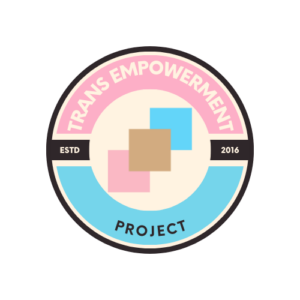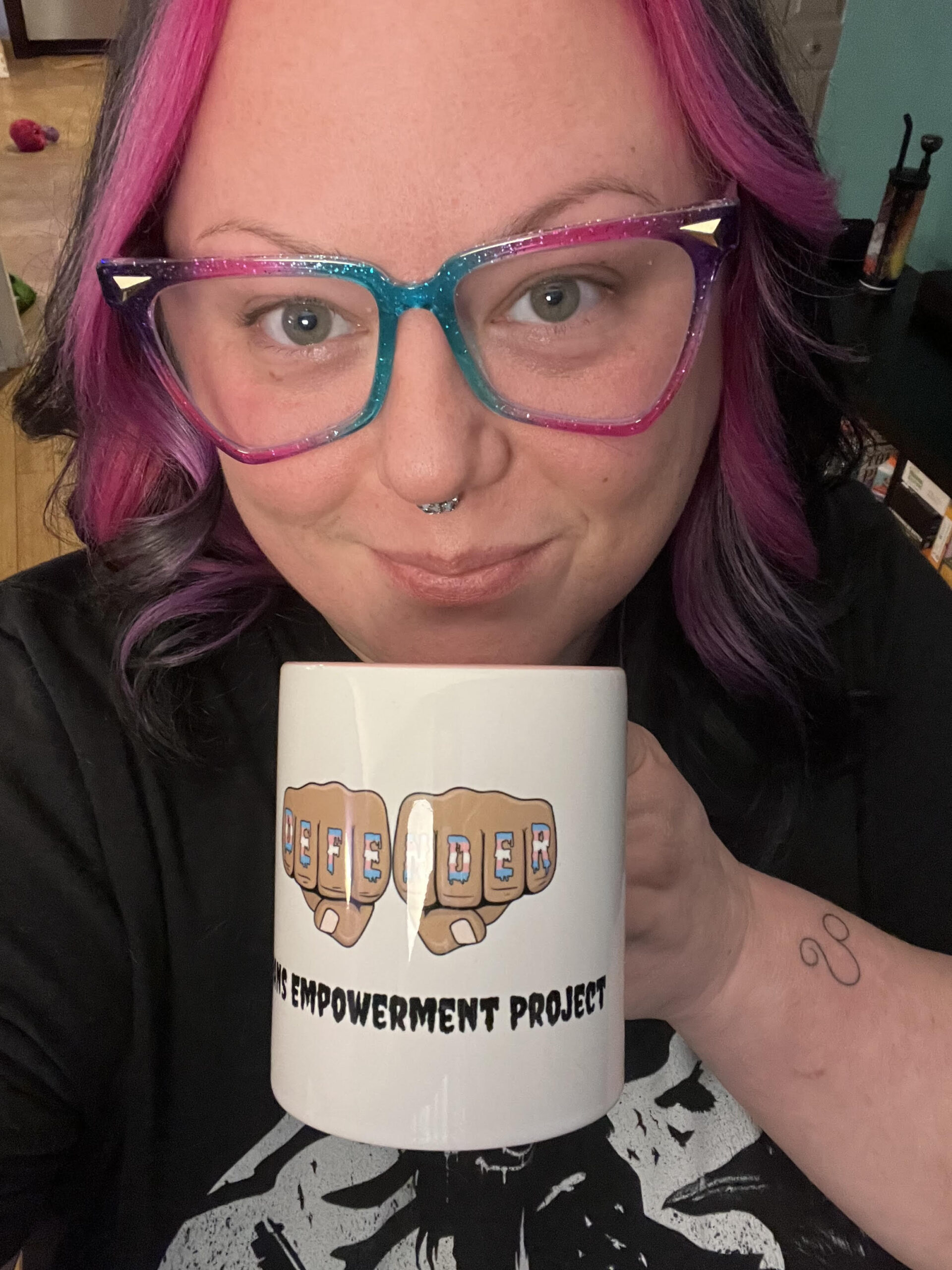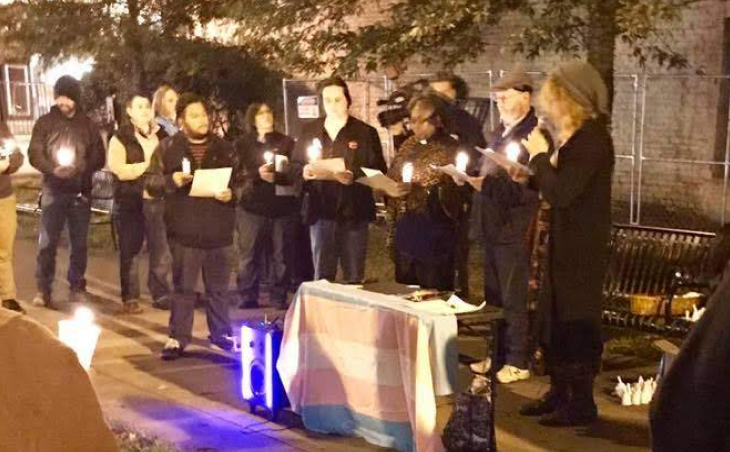The holidays have come ‘round again and it’s time for families and friends to gather together and celebrate. Lots of you might be gathering for the first time since covid began, which is already nerve-wracking enough. What you might not know is that a significant number of people have come out as trans or non-binary during the last almost 2 years of quarantine and isolation. Your friend or family member will need support, and if you can put aside any biases or assumptions you have and be affirming, it will go a long way towards making sure you have a relationship with them in the future. Below are 10 tips you can use this holiday season to be the best ally you can be for your trans or non-binary loved ones.
- Pronouns and name – ALWAYS use your loved one’s new name and pronouns. If you don’t know, ask, and then practice ahead of time. Don’t make excuses like “it’s just too hard, I’ve known you as (blank) for so long!” Practice, practice, practice, so that you don’t mess up when you see them. Speaking of “them”, let’s take a moment to talk about they/them pronouns since they seem to get a lot of pushback from folks who don’t think they/them should be used as a singular pronoun. What you might not realize is that we have been using they/them as a singular pronoun for centuries and that you’ve been doing it your whole life. For example: “Oh no, someone dropped their keys in the parking lot. I will try to find them so that I can return their keys.” It’s not as hard as you think it is, it just takes practice.
- Check-in and educate yourself beforehand – The best thing you can do as an ally is to follow the lead of your loved one. If they seem excited to talk about their name change, pronouns, transition journey, etc, by all means, share that joy with them. Just remember that it’s not up to you to lead that conversation. Don’t expect your loved one to show up and answer every question you or other guests have about trans people. While some folks don’t mind answering questions if they’re framed politely and respectfully, some trans people don’t have it in them to give that kind of emotional labor, especially during a time that’s probably already very stressful for them. Marginalized people do not owe you an education on their experiences. Be proactive and learn what you can ahead of time. If you’re unsure of where to start, we’ve included further resources below.
- Don’t ask questions you wouldn’t ask a cis person (a cisgender person is someone who identifies as the gender they were assigned at birth) – This should be obvious but you should never ask questions of your trans or non-binary loved one that you wouldn’t ask of a cis person. Asking questions like “have you had any surgeries” or “what’s in your pants” or “which bathroom do you use when you’re in public” is incredibly offensive. You wouldn’t ask a cisgender person these questions, so don’t ask them of your trans or non-binary loved ones. The answers to these questions are none of your business and asking them only makes your trans loved one(s) extremely uncomfortable.
- Gendered traditions – Lots of folks have family traditions that they perform during the holidays, whether that’s having folks only buy gifts for family members of the same gender or having the post-meal tradition of men watching football and women cleaning up the kitchen. If your loved one is a trans man or trans woman, including them in the traditions that were formerly forbidden to them because of their assigned gender at birth can be really affirming and is a great way to make them feel accepted. If your family member is anything other than a binary trans person (trans man or trans woman), any “gendered” traditions are likely to, by default, not feel inclusive to them. Consider speaking with them to see if together you can brainstorm ideas for new traditions that will help them feel seen and validated.
- Recounting old stories/sharing pictures – Ah, those good times when your family and friends recount funny, heartwarming, and/or embarrassing stories about your youth! Remember though, your trans or non-binary loved one went by a different name and/or pronouns back then, so you need to adjust your stories accordingly. Don’t say things like “back when *so-and-so* was a girl” or “before *blank* came out as non-binary”, just tell the story like you normally would and replace all the old names and pronouns with the correct ones. If this seems daunting, don’t forget to practice ahead of time! Also, some trans or non-binary folks do not like seeing pictures from before they transitioned as it can make them feel dysphoric, so be sure to ask them privately about their comfortability before you whip out any childhood/pre-transition photos.
- Don’t “out” them to anyone else – Just because your trans or non-binary loved one came out to you (and maybe even the rest of the family), it doesn’t mean they’re ready to come out to everyone. While they may have wanted to share this wonderful news with you during the holidays, they might still have to stay closeted at work and/or other social situations. Outside of the circle of people who will be at this holiday gathering, do not assume that anyone else knows they’re trans or non-binary or that it’s safe for them to come out to everyone around them. Trans people have a right to come out to who they want to, in the ways they want to, and in their own time. Even if you mean well, outting them could put their livelihood, or even their life, in danger.
- Gift-giving – Okay, so you’ve been buying gifts for this person for years but now that they’ve come out, you’re not sure what to give them. What the heck are you going to do?! Well, you can always ask! Your loved one may be trying to build a new wardrobe, or compiling a makeup collection for the first time, or exploring toiletries/hygiene products that they’ve never used before. (If they’re looking for something along these lines, and you have a product that you use and love, which you think they’d love too, share it with them! What better way to find new commonalities through gift-giving!?) You can also ask them if there’s anything they want or need, even if it’s something fun and silly like a toy they always wanted as a kid but weren’t allowed to have because of traditional gender roles.
- How to handle the problematic family member(s) – Regrettably, there’s almost always going to be “that” friend or family member at your gathering. You know, the one who repeatedly misgenders and/or deadnames your trans or non-binary loved one? Or even the one who idolizes a certain president who tried like hell to make life for trans folks even harder than it already is? Well, it’s your job as an ally to run defense between your trans or non-binary loved one and problematic Aunt Karen, and you don’t have to be an expert on trans people or politics to do it. If someone is misgendering, deadnaming, or otherwise making your trans or non-binary loved one feel uncomfortable or excluded, it’s your duty to set boundaries with this person to let them know you will not tolerate any disrespect of your trans loved one. You don’t have to be loud or aggressive, you just have to be firm, ally is a verb and it’s something we must continually strive to be, even in difficult situations.
- Make space for their comfort, not yours – Using a different name and set of pronouns for someone you’ve known your whole life might seem difficult, seeing your loved one as their authentic selves instead of the person others thought them to be might make you feel like you lost someone, and standing up to a problematic friend or family member might be your worst nightmare, but this isn’t the time to make it about you. Your trans or non-binary loved one needs to see that you’re actively working to support them. They need you to be an ally, even when they’re not around. Your acceptance and support are key to making sure that they’ll still be around in the future, and not just at family gatherings. 41% of all trans people have attempted suicide at some point in their life, but having a supportive parent or family member can cut those instances almost in half. Just by being a decent, respectful human being, you could literally be saving their life!
- What to do if you mess up? We know, all of this seems pretty heavy at first. You’re probably worried that you’re going to screw up somehow and it’s giving you a ton of anxiety. Don’t worry, everyone makes mistakes and your trans loved one is most likely not going to hold you to impossible standards, especially if they see you truly making an effort. What you can’t do is continue to make the same mistakes without acknowledging and working on them, or make your loved one feel like it’s somehow their fault that you’re having to learn how to use this new information. Trans people should not be made to feel like a burden for existing. You do not need to make a huge deal when you do make a mistake. Crying, apologizing repeatedly, and forcing your loved one to console you over your mistake is not the way to show you care. If your loved one (or another ally friend or family member) points out that you slipped up on a name or pronoun, the *only* thing you should do is apologize (once is enough), thank them for reminding you, and move on with the conversation, resolving to do better next time.
Congratulations! Your trans or non-binary loved one trusted you enough to share this truth about themselves with you, which means they want you to be a part of this new life they’re about to embark on. Please be the support system they need and give them the love and acceptance they deserve. Happy holidays!



